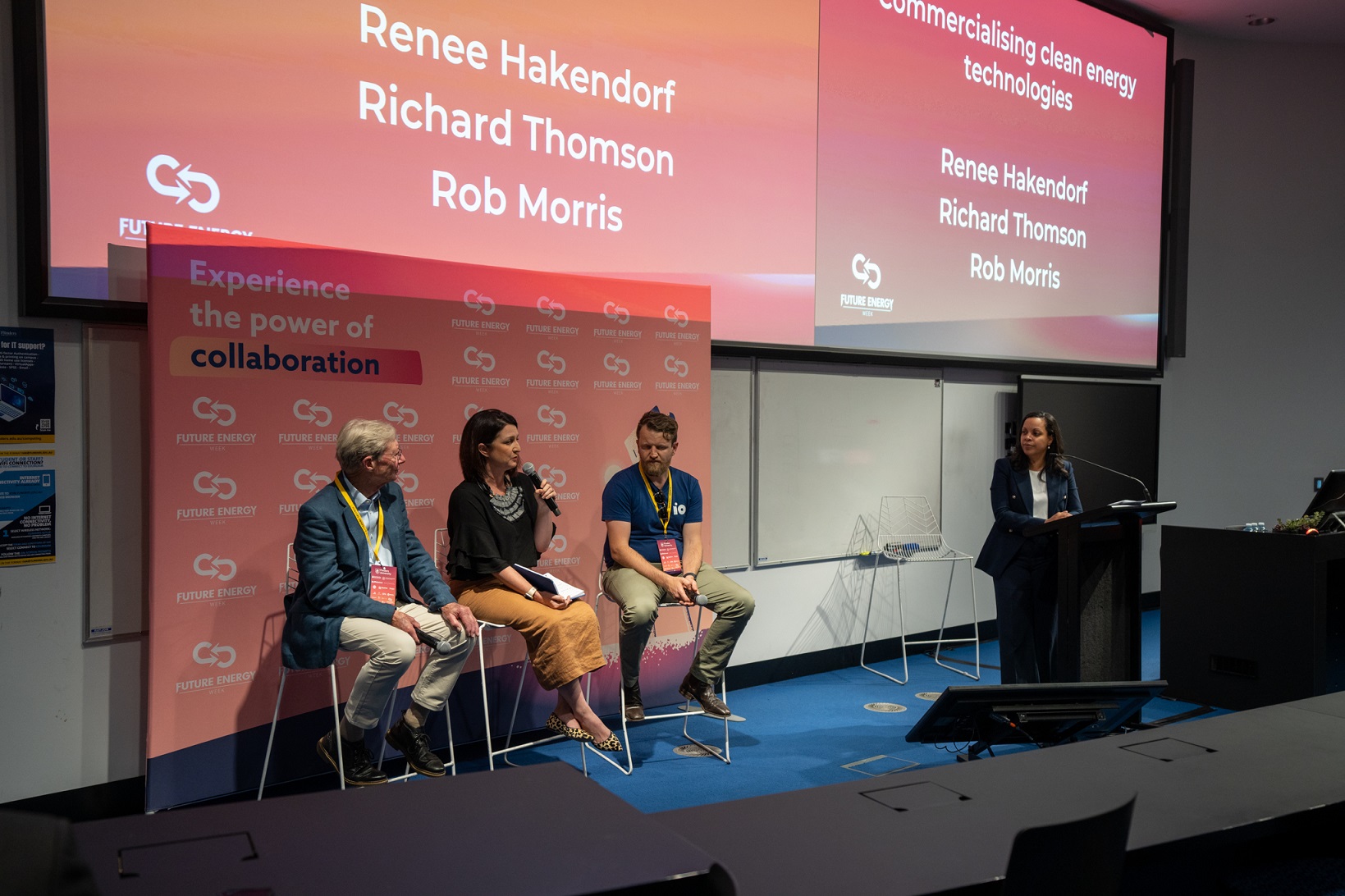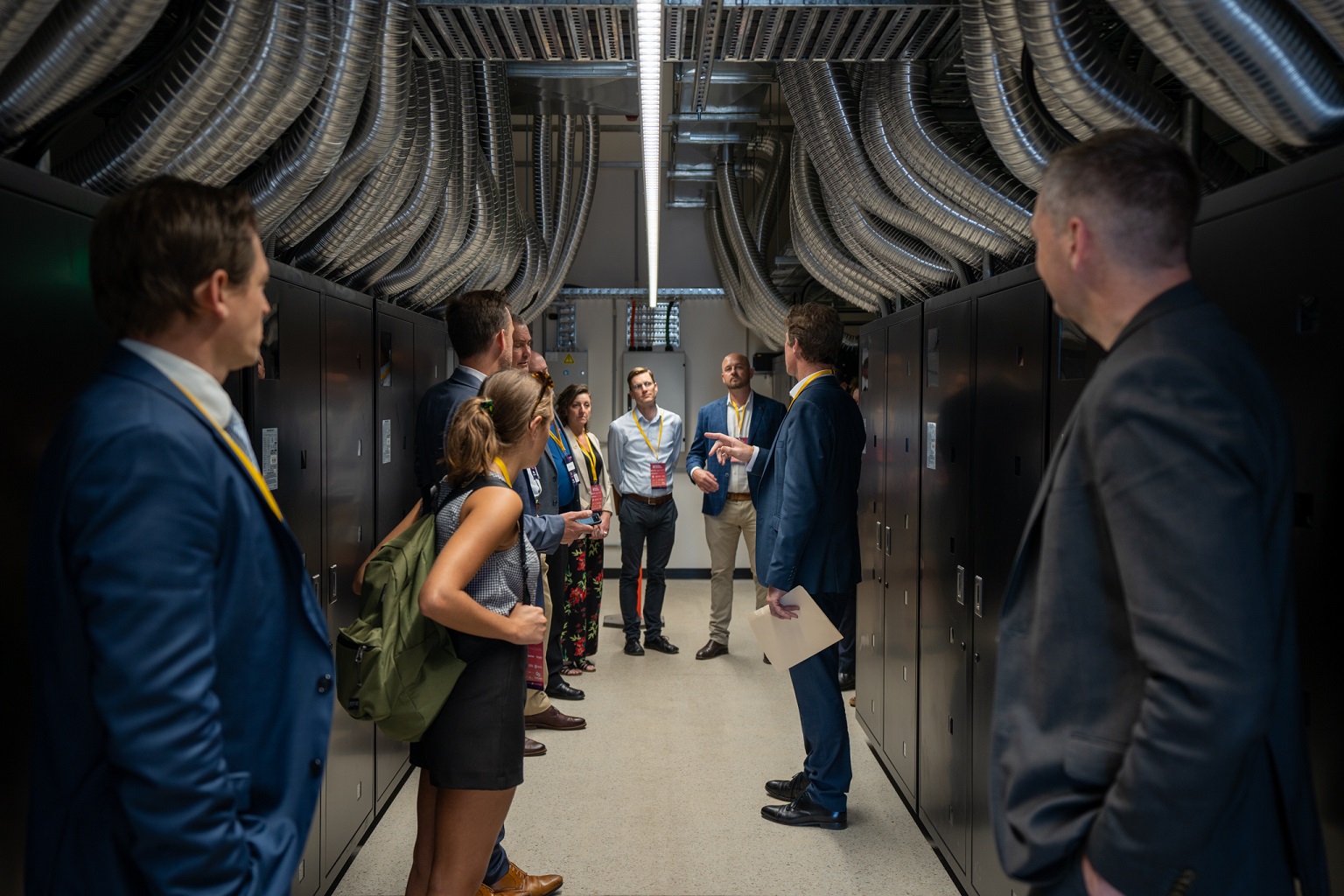
To fuel acceptance of green energy innovations, Flinders University will play a leading role in presenting Future Energy Week – the leading annual energy solutions showcase in South Australia providing essential links between government, academia and industries striving to transform clean energy use in Australia.
The 2024 event, being held on 29 November, has evolved from the collaboration and combined input of 16 organisations at the Tonsley Innovation District – and after 4 years, with support of the World Energy Council, Future Energy Week attracts up to 300 participants from federal and state governments, academia and industry.
Quentin Roberts, Managing Director of clean energy consultancy company EfficientSee, initiated the Tonsley Future Energy Consortium in 2018 to facilitate greater collaboration between innovative, like-minded energy organisations, leading to Future Energy Week.
“It’s an action-orientated event, not just a talkfest, structured so the participants can understand problems and form solutions,” says Mr Roberts. “It’s not just about the technology. It’s about planning so that no segment of society falls behind – to understand how can clean energy options can apply to all, especially low-socio-economic segments of society.”

Inspirational speakers each year have shared ideas, inspiration and sparked rich conversations between all participants, which has in turn led to regular meet-up activities, providing a springboard for these innovative companies to action initiatives after Future Energy Week.
Start-up companies also enjoy crucial exposure at Future Energy Week. Infinitus Aero has presented its innovative E22 Spark electric plane to government and industry investors. Farm Lab has broadened discussions about agricultural energy consumption solutions. CleanPeak Energy showcased their district microgrid, solar and battery system. Australian Gas Infrastructure Group has promoted its Hydrogen Park South Australia development, producing Australia’s first commercial supplies of renewable hydrogen gas – and this has provided the springboard that has inspired the SA-H2H™ Accelerating Hydrogen Mobility Workshop, which now runs at the same time as Future Energy Week.
Specialist skills workshops are also conducted during Future Energy Week, helping emerging undergraduates to embark on successful career pathways. The event also attracts about 150 secondary school students each year to inspire their choice of future studies through interacting with industry workers and products in the Future Energy expo area, gaining knowledge about such innovations as wind turbines and Flinders University’s FAST solar car that competes in the World Solar Car Challenge. Digital technologies such as the UING Virtual Touchscreen are also demonstrated.
Other outcomes from Future Energy Week include formulating cutting-edge microgrid designs, digitised games to help promote broader public energy literacy, and drafting the Tonsley Accords (inspired by the 2016 Paris Agreement on climate change) that identify key aspects of clean energy transition and targets, to help the state government shape future energy policies.

In response to the success of the event, Flinders University is presenting information sessions that will advance greater promotion of clean energy initiatives within the education sector. A STEM Teacher Professional Development Workshop about Renewable Energy Revolutions & Energy Systems was held on Tuesday 10 September by Professor Apel Mahmud from the College of Science and Engineering, examining energy systems that have been revolutionised through renewable energy sources. Professor Mahmud is part of a Flinders University team developing an online Graduate Certificate in Renewable and Sustainable Energy, specifically designed to assist local councils and industry.

